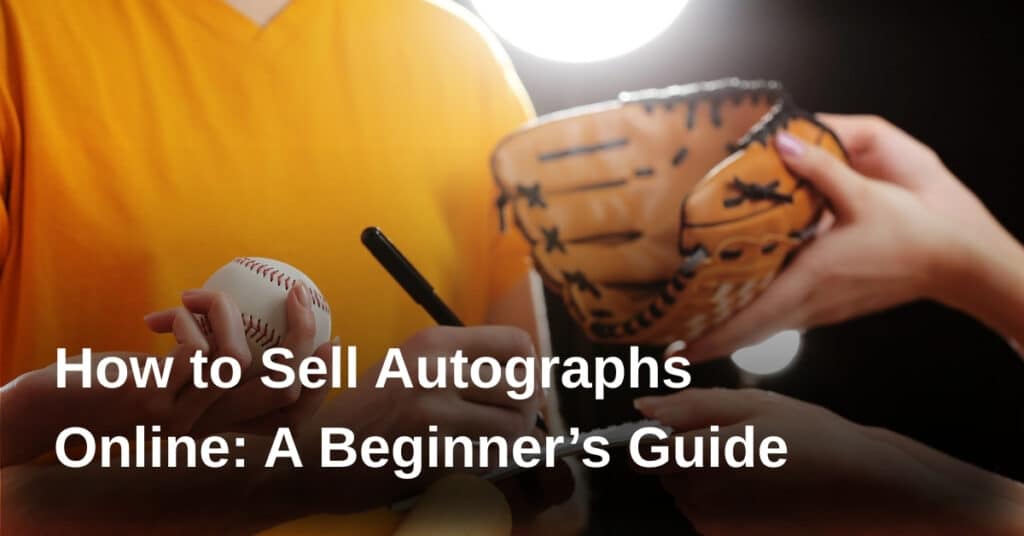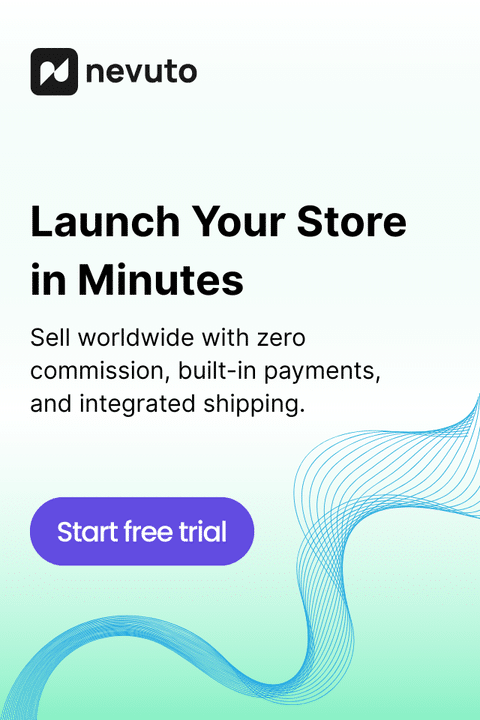
In today’s digital age, turning cherished collectibles into income has become remarkably accessible, and autographs are no exception. For enthusiasts and novices alike, learning how to Sell autographs online can be both a rewarding and profitable venture. Whether you’re a passionate collector or someone with a few prized signatures tucked away, selling online offers a unique opportunity to connect with a global audience who values these items as much as you do. However, the online marketplace can seem daunting. With the right guidance, you can navigate this space effectively, ensuring your selling experience is seamless and successful. Understanding what to do next is crucial in transforming those treasured signatures into exciting opportunities. So, why not dive in and discover a new way to share your passion?
Main Points
- Research Market Value: Before listing any item, understand the current market trends and valuation of specific autographs to set competitive prices.
- Choose the Right Platform: Each platform has unique benefits; select one that aligns with your selling needs, whether it’s a niche marketplace or a general e-commerce site.
- Authenticate Your Item: Authenticity is paramount. Invest in professional authentication services to build buyer trust and ensure a hassle-free transaction.
- Craft Detailed Listings: Write informative and accurate descriptions, including the autograph’s history or any notable significances, supplemented by high-quality images.
- Establish Clear Policies: Outline shipping, return, and payment policies to provide clarity and avoid misunderstandings with potential buyers.
- Engage with Buyers: Provide timely and courteous communication to build reputation and encourage repeat customers.Understanding the Autograph Market: Key Trends and Insights
In the intriguing world of collecting, the autograph market unveils its complexity through evolving trends and insights. The fascination with celebrity signatures isn’t new, yet the dynamics continuously shift. One prominent trend is the increasing desire to sell sports autographs. This surge arises partly because athletes evoke a robust connection with their fans. Although, some believe this market sector could be inflated—others argue otherwise, seeing it as an investment opportunity.
Current Trends
- Digital Authentication: New technologies enhance trust for both buyers and sellers.
- Nostalgic Value: Signatures from past icons gain appeal.
- Market Fluctuations: Prices can vary unpredictably, depending on recent sports events or anniversaries.
Nevertheless, the drive to sell sports autographs remains strong among enthusiasts. With careful navigation, one can discover both passion and profit in this collectible realm. While prices can fluctuate, understanding market indicators is crucial for those wishing to capitalize effectively. In essence, the autograph market thrives on a blend of fascination, nostalgia, and financial speculation.
Identifying Valuable Autographs: What to Look For
Understanding the elements that contribute to the value of an autograph is crucial. First, the authenticity of the signature carries substantial importance. Authentic autographs often come with a certificate of authenticity, proving their genuineness. Furthermore, the condition of the material—whether it’s a photograph, piece of memorabilia, or document—can significantly impact its worth. Even minor damage can devalue an otherwise prized item.
Additionally, the rarity of the signature contributes to its desirability. A well-preserved autograph from a notable individual, particularly a rare or seldom-seen signature, is typically more coveted. The market demand also influences value considerably; hence, keeping tabs on current trends is beneficial. However, personal connections sometimes transcend these market dynamics, sparking interest regardless of broader trends.
When you aim to Sell autographs, the provenance, or the history of ownership, can also increase fascination and value. Therefore, proper documentation, reflecting the autograph’s journey, holds significant importance.
Authenticity Matters: How to Verify the Legitimacy of Autographs
Verifying the authenticity of an autograph is crucial, especially if you sell autographs. Start by examining the signature’s characteristics, such as the slant, pressure, and formation. These elements often reveal more than meets the eye. It’s beneficial to compare it to verified examples; however, access to such samples can sometimes be restrictive. Provenance, the document’s history, plays a significant role, as it helps trace the item back to its origin, providing assurance or raising suspicion. Certificates of authenticity are helpful but beware—these, too, could fall prey to forgery. In cases of uncertainty, expert opinions bring clarity yet may come at a cost. Additionally, investigating the context in which the autograph was obtained offers insight; for instance, was this likely place and time? With these steps, one can navigate the intricate world of autographs wisely, ensuring that what you possess or sell autographs is genuine and reflects true value.
Crafting Compelling Listings: Tips for Writing Effective Product Descriptions
Creating compelling and engaging listings is essential for drawing in potential buyers and encouraging them to make a purchase. These descriptions should weave a narrative that not only informs but also captivates the reader. It’s not enough to simply provide details; a good description needs to tell the product’s story. Begin by considering what makes your product unique—consider the materials, craftsmanship, or innovative features. However, do not get lost in technical jargon. Instead, frame your details in a way that highlights how they benefit the customer.
Use vivid language where possible, yet ensure clarity. Consider these tips for enhanced impact:
- Know your audience: Tailor content to their preferences and needs.
- Create a connection: Use sensory words to help buyers visualize or feel the product.
- Keep SEO in mind: Incorporate keywords naturally, such as Sell autographs, to improve visibility.
Therefore, a well-crafted description becomes an effective marketing tool, offering more than just details—it delivers an experience.
Choosing the Right Platform: Where to Sell Your Autographs Online
Navigating the world of online marketplaces to sell autographs can be an intriguing endeavour. Each platform offers distinct features and nuances that cater to various needs. eBay, for instance, is renowned for its broad audience reach. However, its fluctuating market can sometimes lead to unexpected results. Alternatively, platforms like Etsy, known for its artisan community, might seem unconventional. Yet, it offers a niche market eager for unique collectibles. For those focusing more on the sports memorabilia scene, specialized sites like SportsMemorabilia.com provide an enthusiastic customer base. Another alternative could be looking into auction houses that offer online services, combining the traditional and digital realms. Each avenue presents its advantages and drawbacks, influenced by your personal preferences and the nature of the items you possess. Therefore, it’s essential to evaluate your priority: reaching a wide audience, finding specialized buyers, or balancing both. The right choice in my opinion largely depends on these underlying considerations.
Pricing Strategies: How to Set Competitive and Profitable Prices
Setting competitive and profitable prices is a delicate balance that businesses often struggle to maintain. The ultimate aim is to attract customers while ensuring that every sale remains viable. One effective strategy is value-based pricing, which involves setting prices primarily on the perceived or estimated value to the customer rather than historical prices. This method can be ambiguous as it assumes customers recognize the same value.
Another widely used approach is competition-based pricing. Here, the focus is on competitor prices. It’s critical, yet risky, because, while ensuring competitiveness, it doesn’t consider individual business costs. Conversely, cost-plus pricing offers a straightforward and foolproof way to determine prices by adding a fixed percentage to the production cost. Although simple, it might overlook market conditions.
Holistically, a dynamic pricing strategy can adapt prices based on demand fluctuations. This can enhance revenue potential but requires constant monitoring. Hence, the key is understanding both market conditions and cost structures effectively.
“Price is what you pay. Value is what you get.” – Warren Buffett
Businesses looking to sell autographs must also ponder the nature of their market. Sell autographs, especially rare ones, may require a keen understanding of both buyer demand and seller thresholds to set prices effectively, ensuring both competitiveness and profitability.
Effective Marketing: Tips for Promoting Your Autograph Listings
To effectively sell autographs, it’s crucial to adopt strategic marketing techniques. Begin by optimizing your online presence; a captivating digital landscape can attract potential buyers. Your listings should be enhanced with high-quality images and detailed descriptions to ensure authenticity and allure. Social media platforms, surprisingly, play a pivotal role, too. Frequent, engaging posts can raise visibility and drive traffic to your storefront.
Amplifying Your Reach
Consider different angles in reaching your audience. Collaborations with influencers or collectors could unlock otherwise untapped networks. Hosting online events or webinars talking about the historical significance and unique stories behind your autographs can spark interest. Furthermore, strategic pricing—knowing when to offer discounts or bundles, for instance—can create perceived value.
Utilizing Platforms
A wide array of online marketplaces specialize in memorabilia. Explore these platforms to discover where your items gain the most attention. Some platforms cater specifically to niche crowds who inherently value what you sell autographs. Balancing between exposure and exclusivity is key.
- Email Marketing: Craft personalised messages to your subscribers.
- Engagement: Respond promptly to queries and cultivate rapport.
- SEO: Use keywords like ‘collectibles’, ‘memorabilia’ and ‘authenticated’.
Ultimately, the strategies you employ can significantly influence the ability to successfully sell autographs. Remember, a thoughtful approach today sets the stage for fruitful transactions tomorrow.
Ensuring Safe Transactions: Understanding Online Payment Options
In the rapidly evolving digital landscape, ensuring safe transactions is paramount for consumers and businesses alike. With a plethora of online payment options available, it’s essential to understand their intricacies. Credit cards, for example, offer an aura of security through encryption and fraud protection, yet they are not without potential vulnerabilities. Digital wallets, like PayPal or Apple Pay, provide an added layer, often serving as intermediaries that help mask your bank details.
While the convenience of emerging technologies is appealing, one must not overlook traditional avenues. Bank transfers, although occasionally cumbersome, deliver a directness some find reassuring. Then there’s cryptocurrency—a relatively novel yet increasingly popular method. Its decentralized nature, however, raises questions about reliability and regulation, posing a dichotomy between freedom and uncertainty.
Ultimately, understanding these options requires balancing ease and risk, especially when you’re involved in specific activities, such as attempting to sell autographs online. Choose wisely, considering all aspects to ensure security and efficiency in your transactions.
Building Trust with Buyers: Maintaining a Positive Seller Reputation
In today’s digital marketplace, establishing a trustworthy presence as a seller is crucial. Buyers often lean towards sellers with positive feedback, which means your reputation is your best marketing tool. Honesty always tops the list; misrepresenting products or trying to hide flaws can quickly tarnish your credibility. Communicate clearly, particularly about shipping times, returns, and product specifics, as transparency can significantly enhance trust. Proactive customer service also makes a difference; addressing issues promptly and fairly doesn’t just solve problems but also builds goodwill. Another subtle yet vital aspect is consistency: providing consistently high-quality service makes your operations predictably reliable. How you handle feedback, whether positive or negative, speaks volumes about your integrity. Interestingly, sincerity in acknowledging mistakes can sometimes yield a stronger connection with buyers. Therefore, view each interaction as an opportunity to bolster your reputation, and over time, you’ll notice a more loyal customer base.
Effective Strategies to Sell autographs
Conclusion
Selling autographs online can be a rewarding endeavor that connects you with fellow collectors and buyers from around the globe. Although the process may seem daunting at first, understanding your market, building a trustworthy reputation, and leveraging the right platforms can lead to success. By ensuring authenticity and fair pricing, you build trust with your audience, which is invaluable in sustaining long-term sales. Furthermore, engaging with your community and continuing to learn about the trade can not only enhance your selling skills but also make the process enjoyable. Therefore, with dedication and the right approach, selling autographs online can be both profitable and fulfilling.
Related Articles:
How to Sell Accessories Online: A Beginner’s Guide
